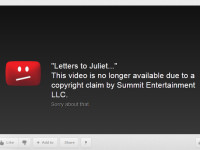Copyright has not received much attention during the election campaign, but a recent survey by SOCAN raises questions about support for copyright term extension. The issue is particularly confusing in the case of the NDP, since it opposes the TPP (which would require term extension and keep works out of the public domain for decades) but it seems to be willing to entertain the prospect of copyright term extension. SOCAN asked whether the parties would be willing to extend the term of copyright to life of the author (or composer) plus 70 years. The NDP’s response:
The NDP welcomed the government changes in Budget 2015 to extend the term of copyright for performers. We understand there is now discrepancy between performers and songwriters. The NDP is committed to reviewing the Copyright Act in 2017 as the Act requires. We would look to make these key legislative changes in our first year of mandate. These are among the changes we would be looking into.











